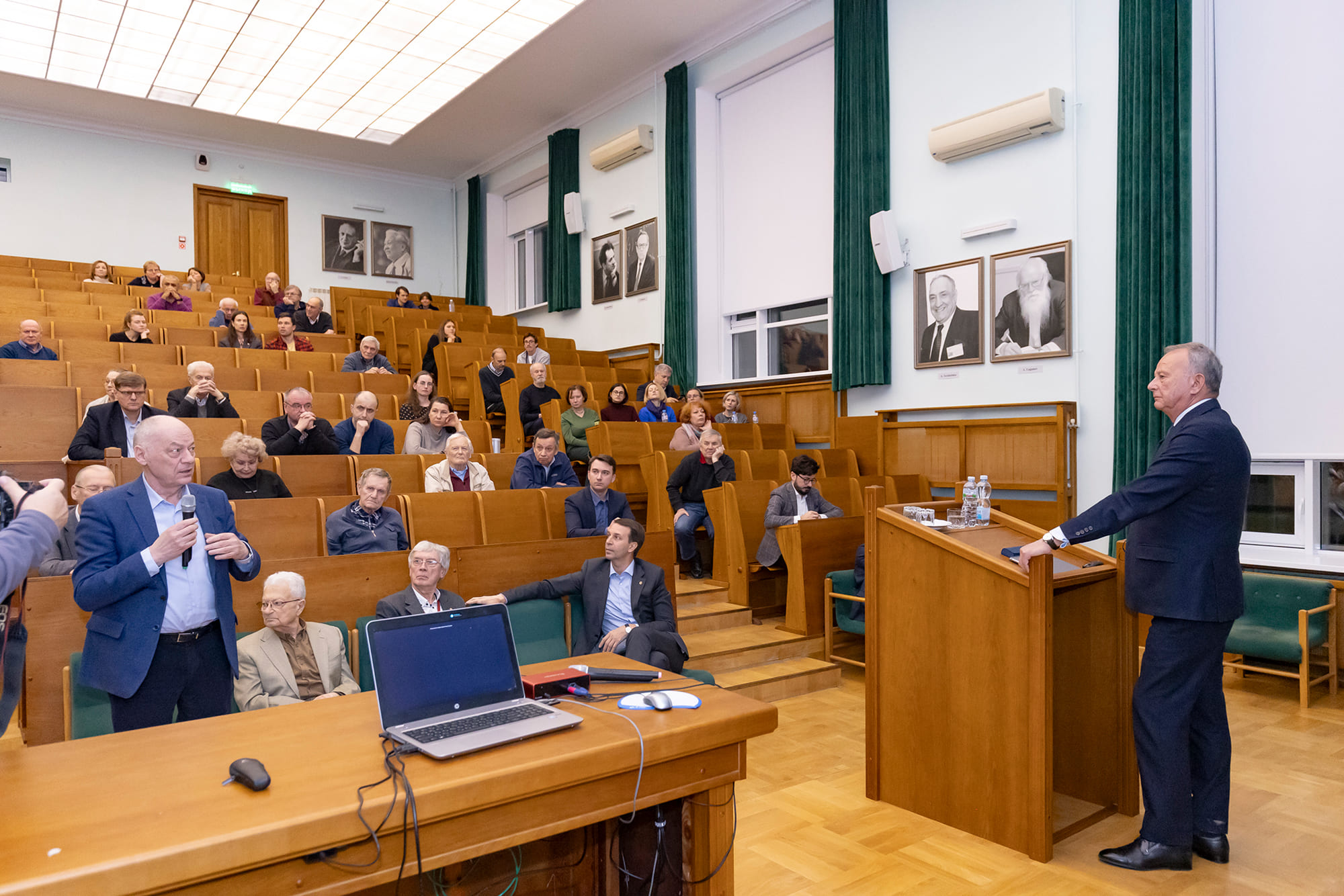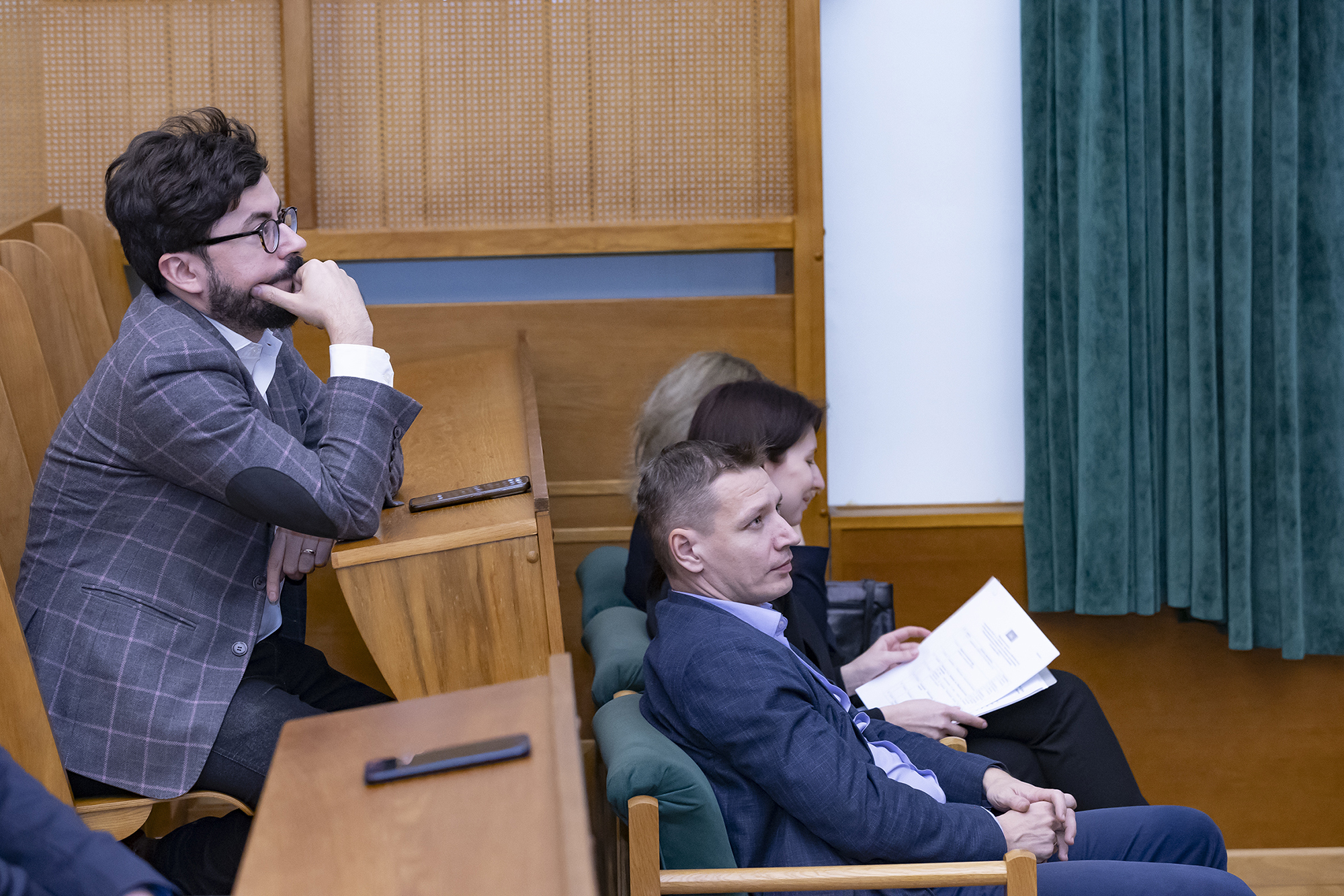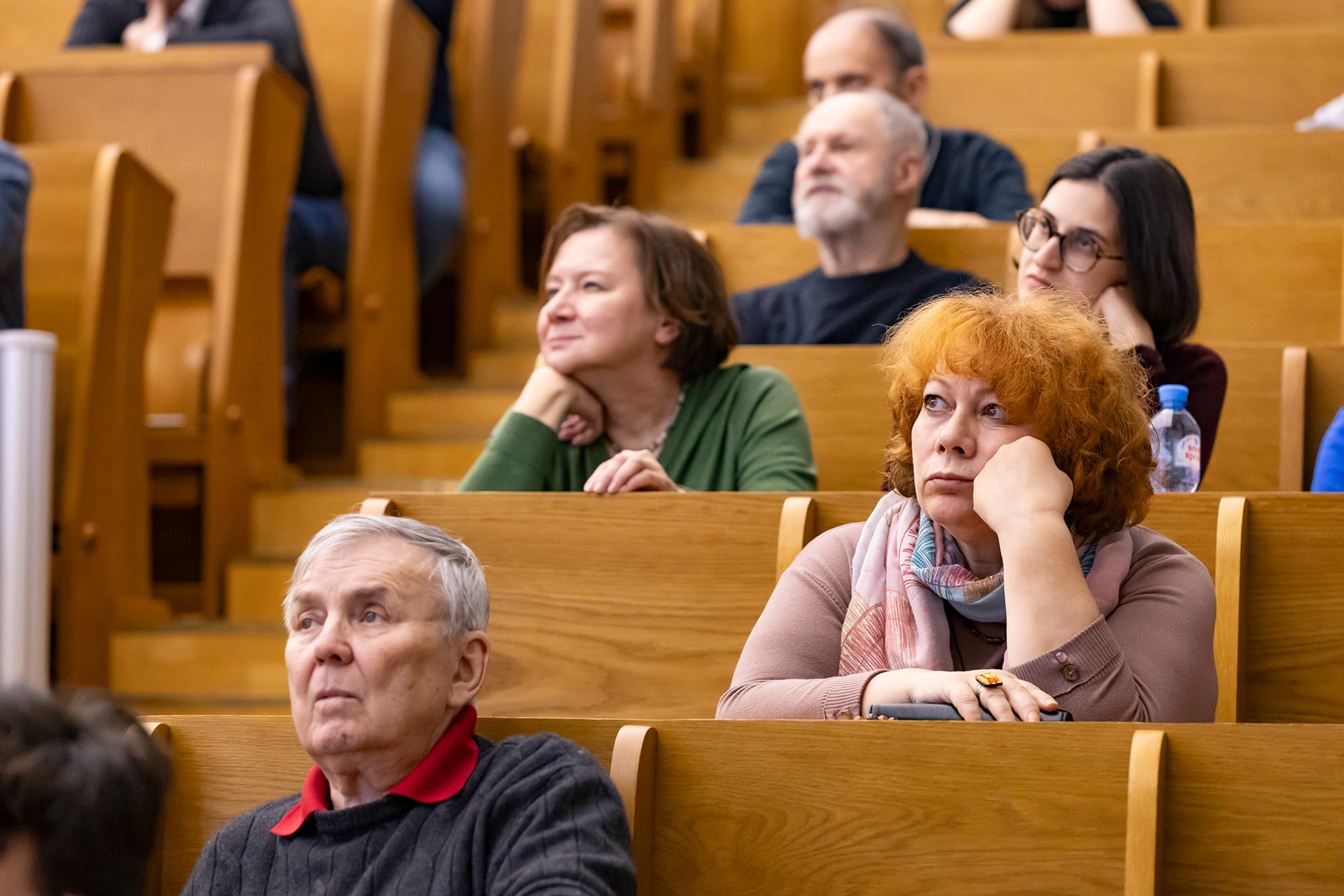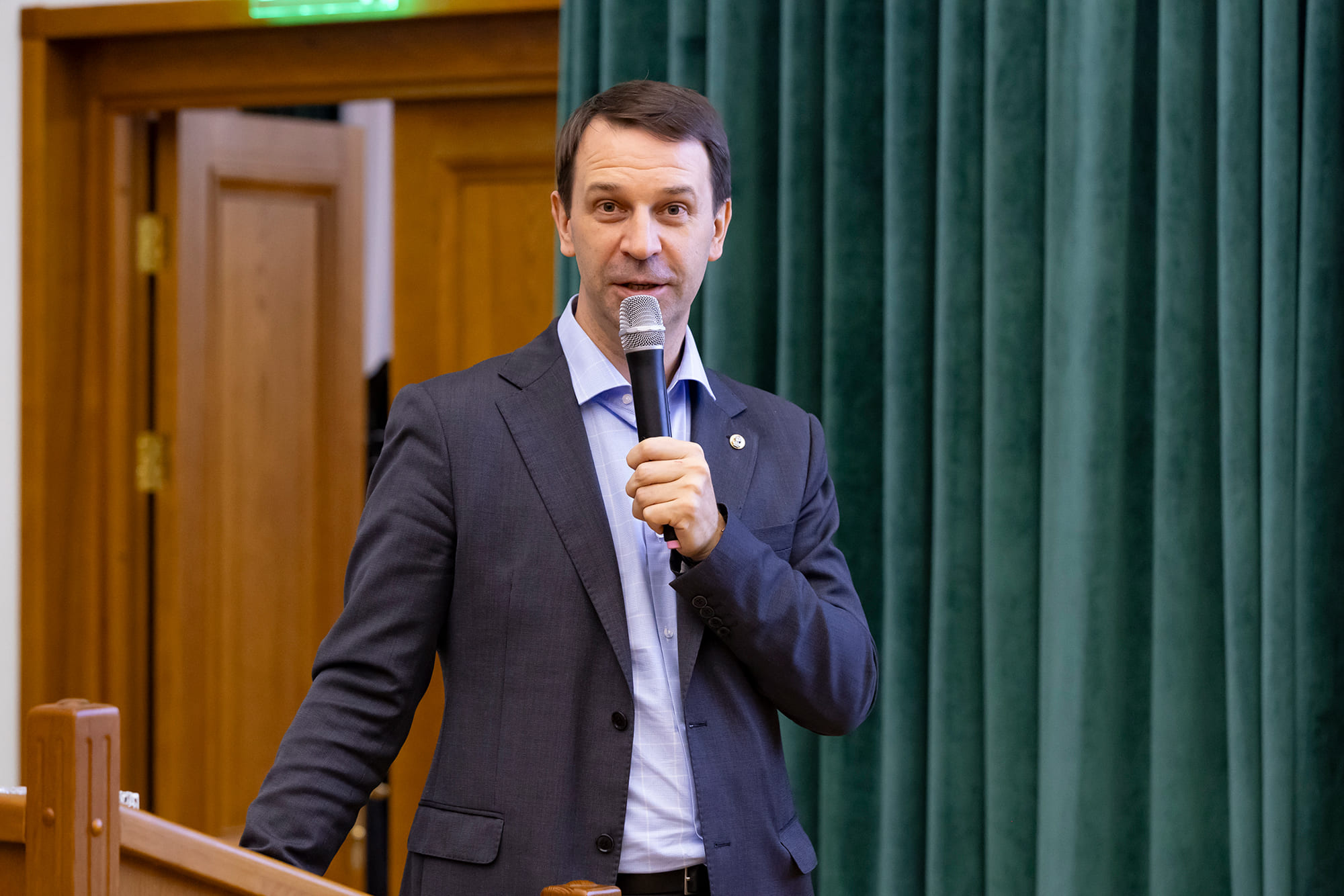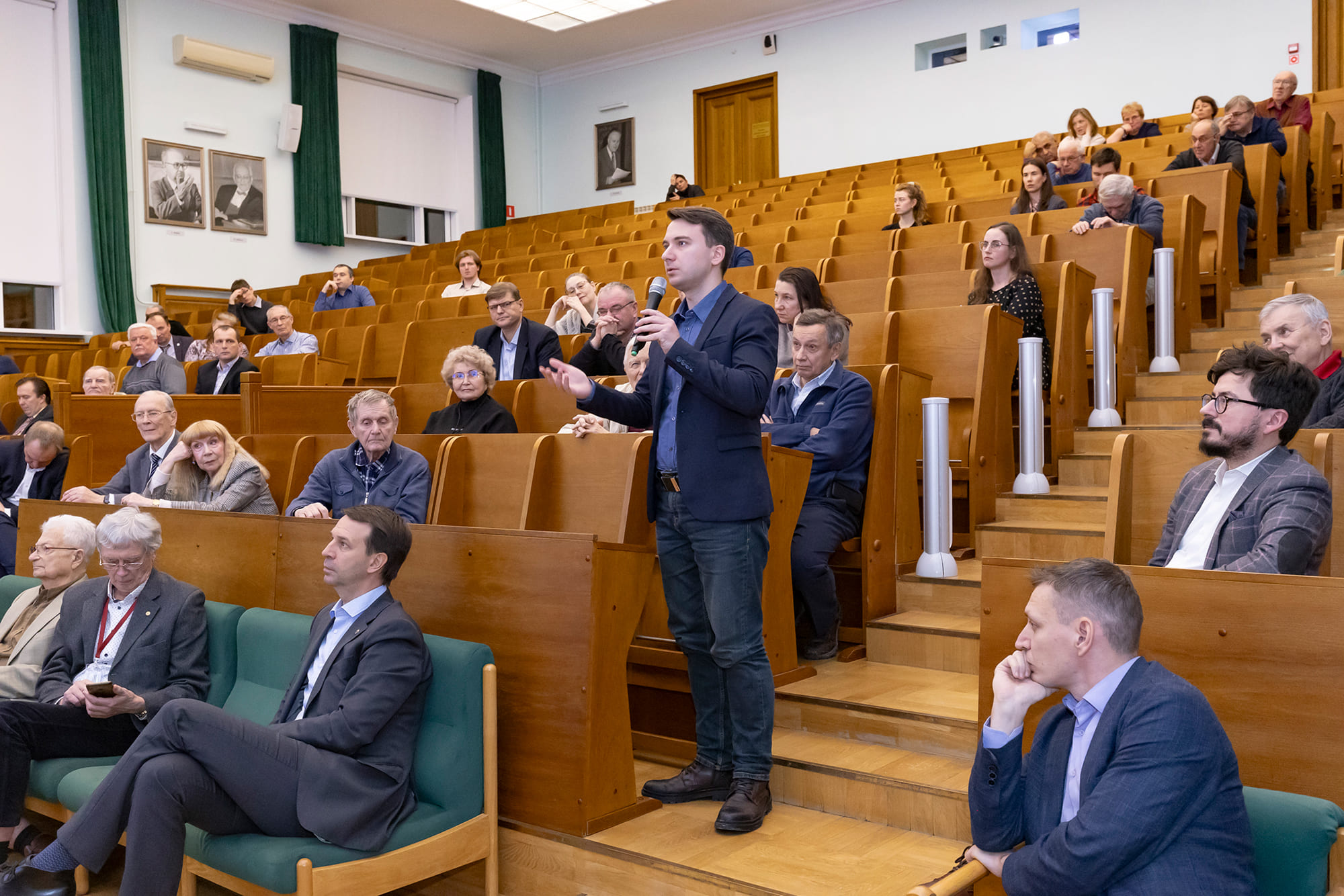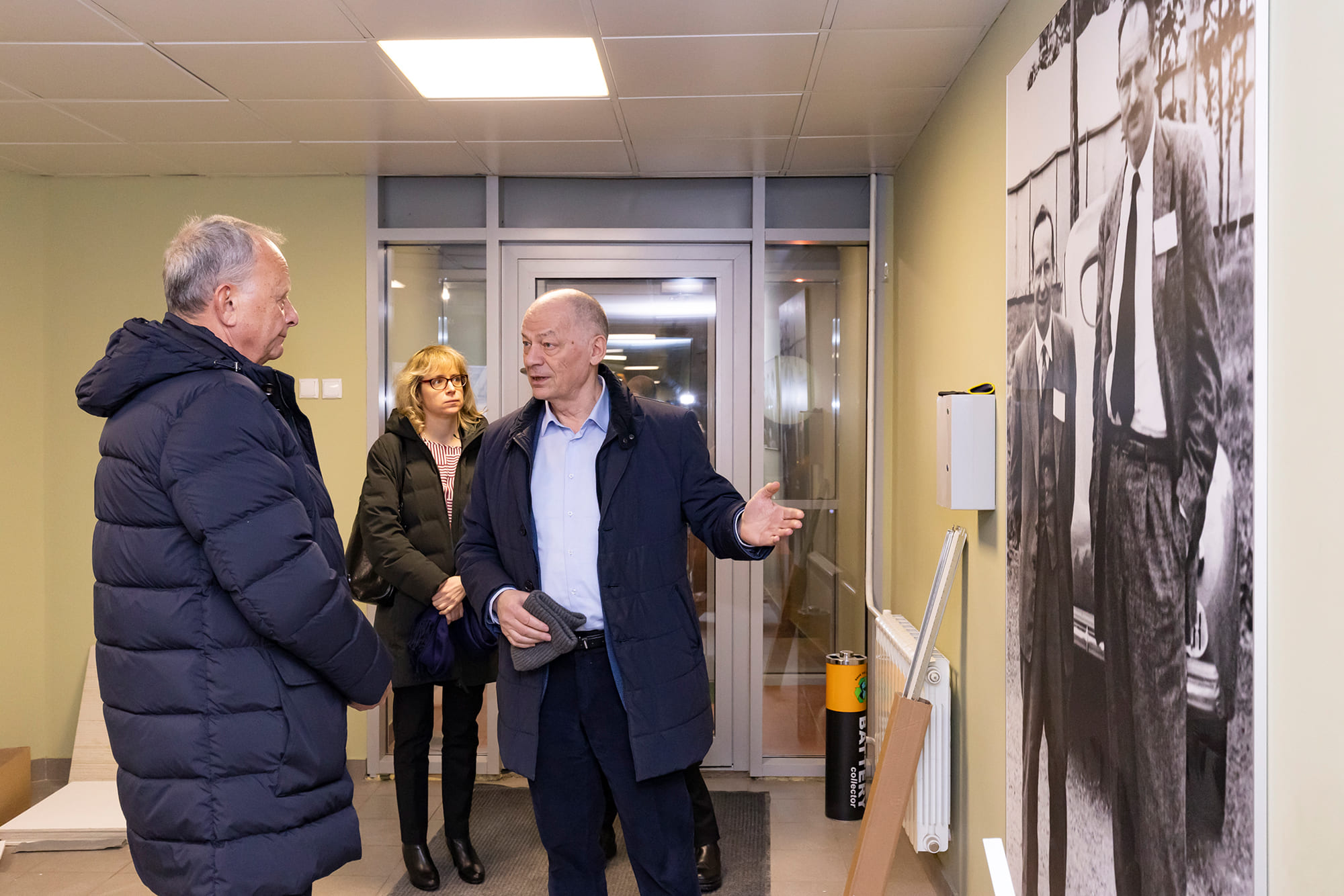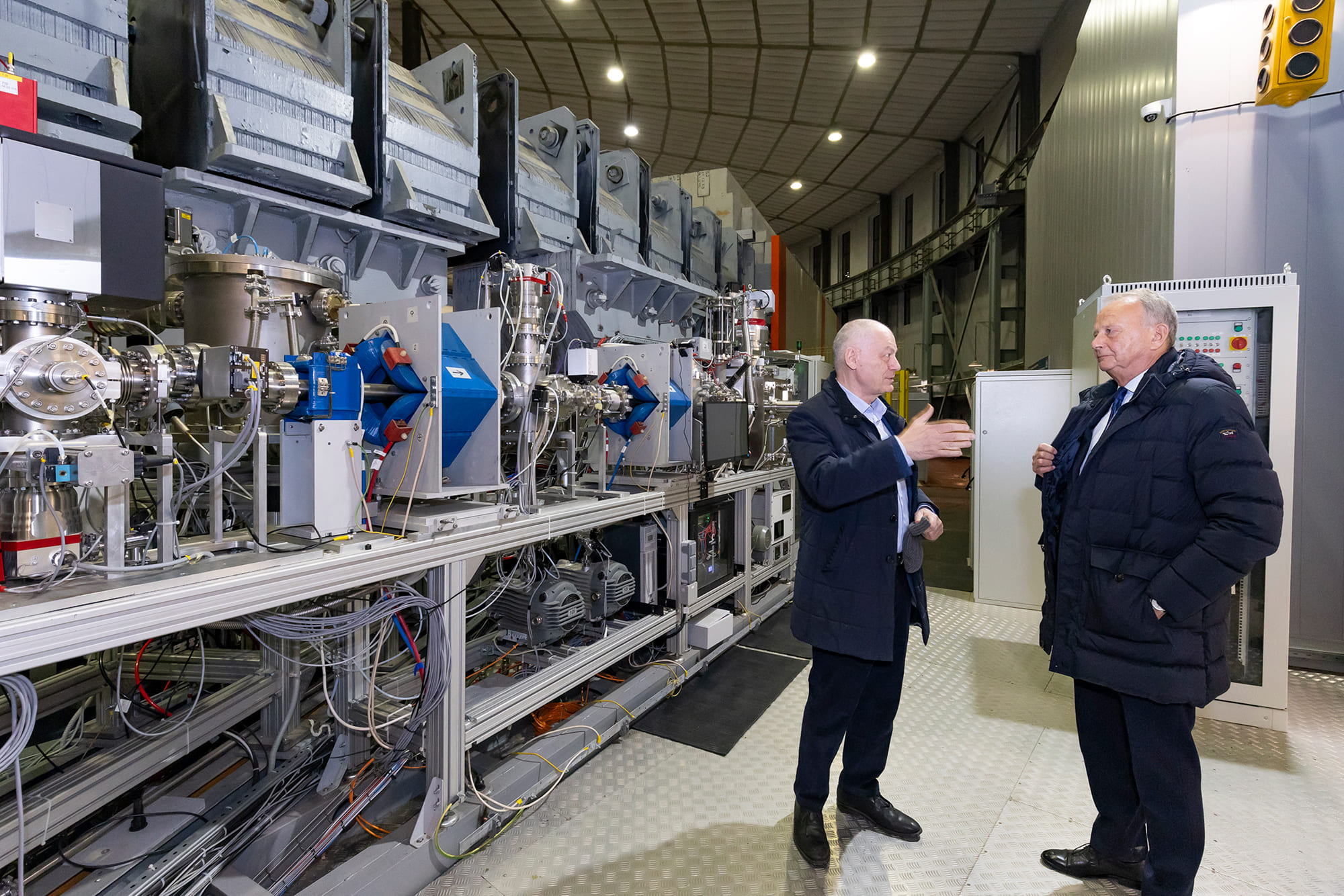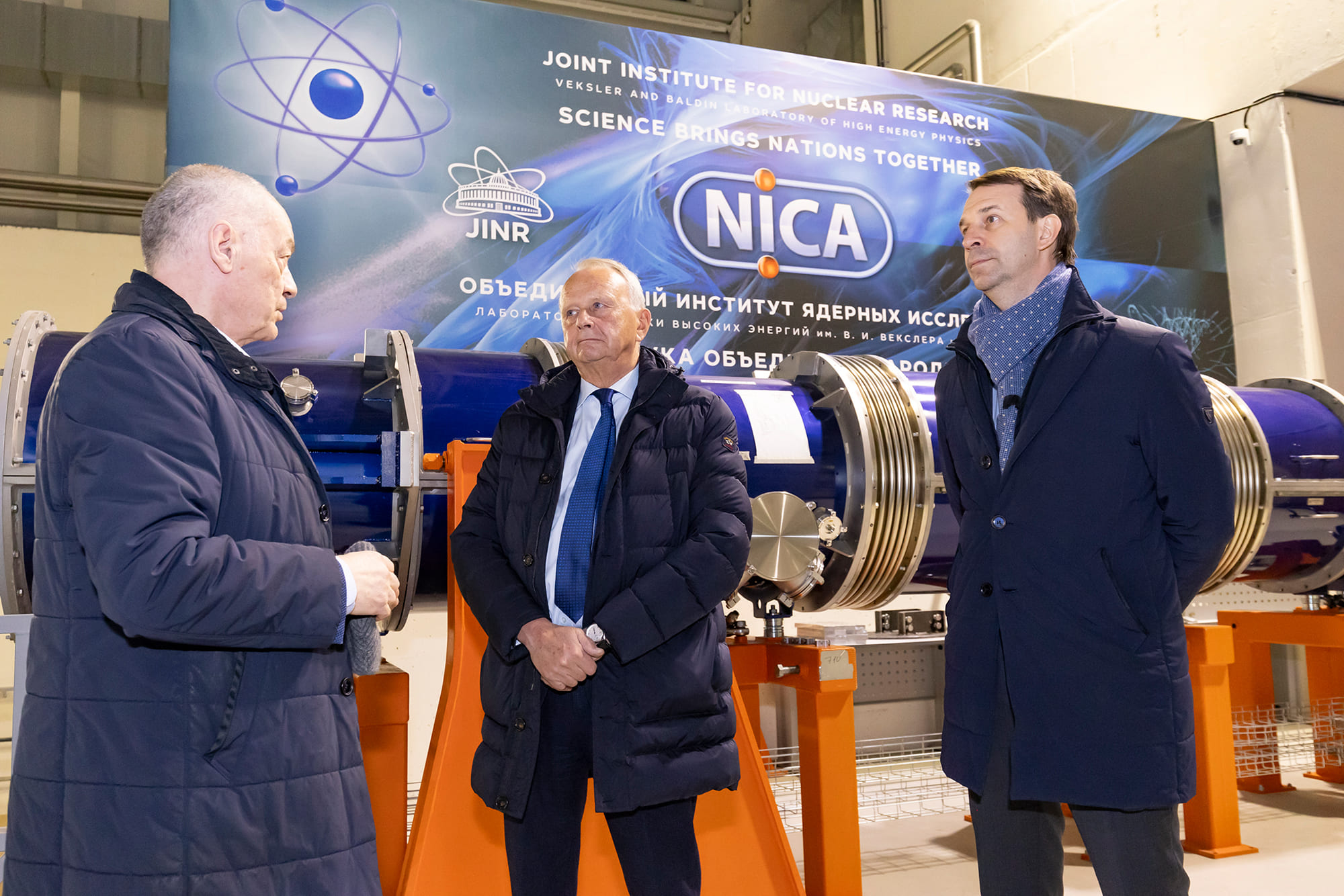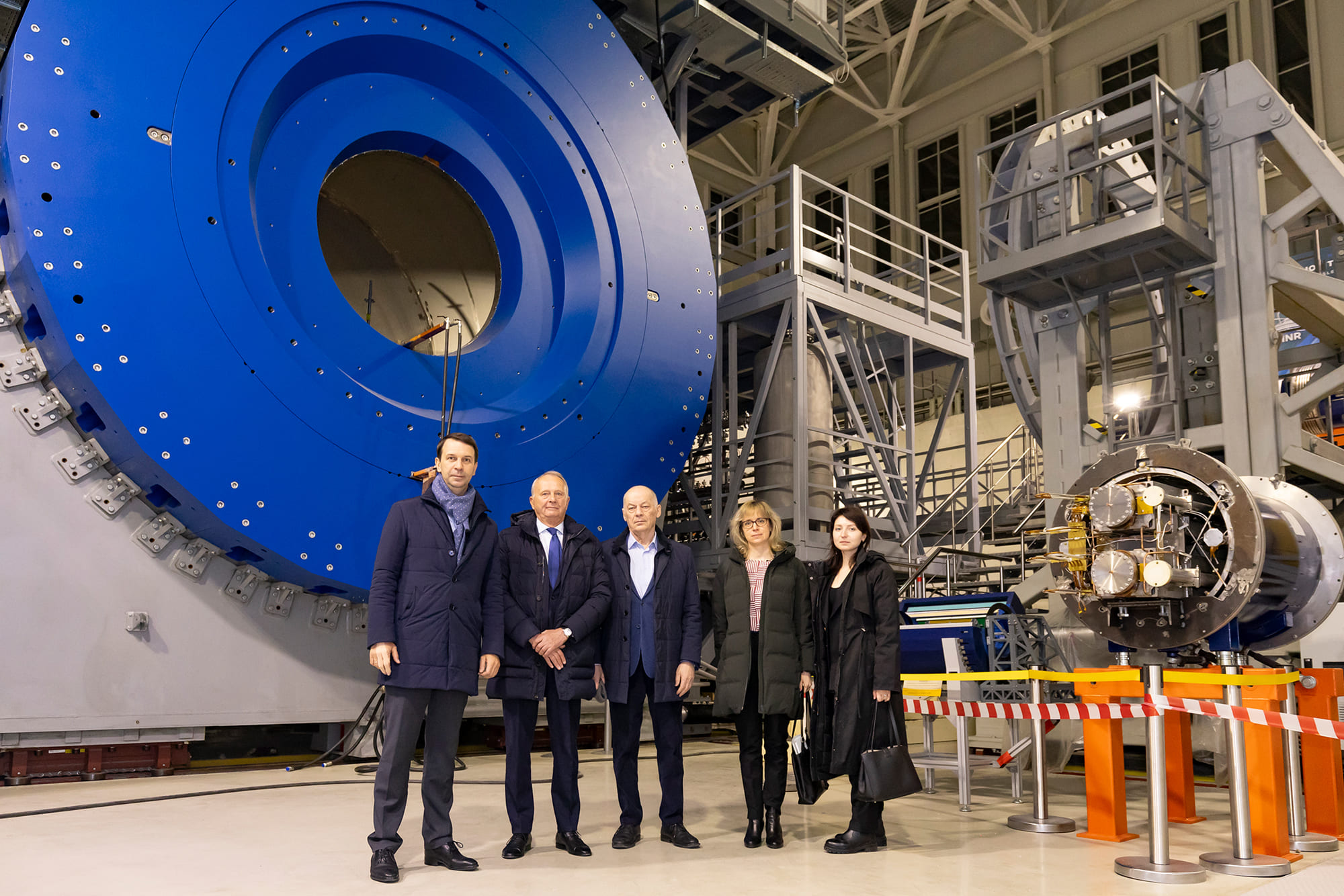Seminar of IMEMO President took place at JINR
News, 25 December 2024
On 24 December, President of the Primakov National Research Institute of World Economy and International Relations (IMEMO) of the Russian Academy of Sciences (RAS), Academician-Secretary of the RAS Department of Global Issues and International Relations, a member of the Board of Trustees of the Russian International Affairs Council Alexander Dynkin visited JINR. The Academician toured the NICA Accelerator Complex at the Laboratory of High Energy Physics at JINR and delivered a talk entitled “World order transformation” in the conference hall of the Laboratory of Theoretical Physics at JINR. The speaker shared how IMEMO’s academic science views the modern understanding of the concepts of an unipolar, bipolar, and multipolar world.
JINR Director, Academician Grigory Trubnikov opened the seminar, noting that in October 2023, JINR and IMEMO RAS signed an agreement designed to facilitate international scientific and technical cooperation and strengthen scientific diplomacy.
“Our Institute is associated with the name of Evgeny M. Primakov, the founder of the RAS Institute of World Economy and International Relations. It is a great honour for us to welcome Academician A. A. Dynkin at the Institute and hear the opinion of academicians who spent several decades professionally studying global processes in the world economy and politics. And since our Institute is international, with employees representing more than 30 countries around the world, this topic is of particular importance for us,” Grigory Trubnikov said.
Academician Dynkin thanked the seminar organizers for the invitation to give a talk and noted that Evgeny Primakov always fondly reminisced about his visits to the Joint Institute.
The speaker presented a view on how global military conflicts, from the Napoleonic Wars to the present day, changed the international relations system. It is currently being determined whether the new order will be bipolar or multipolar in the next ten years or more.
“The key question is what the future world order will be like. It is difficult to predict which of the two current trends will prevail. I believe that they could combine. For example, the Global North could be bipolar, and the Global South could be multipolar,” the speaker emphasised.
The JINR listeners were highly engaged in the Academician Alexander Dynkin’s talk. The seminar participants were interested in the forecast of China’s growing role on the global landscape, the analysis of the political relations of the Institute’s residence country with Western Europe and the chances of scientific diplomacy in these circumstances, the prospects of attracting new Member States to the Institute, the impact of global economics and politics research on the decisions of country leaders, and much more.
In response to a question by JINR Scientific Leader, Academician Victor Matveev on the potential of the BRICS Association and its impact on the new world order formation, Alexander Dynkin noted that the economy’s centre of gravity, the geographical point of equilibrium of trade and investment flows, is definitely shifting to the East, and BRICS is expected to progressively gain more influence. Four countries joined the organization in 2024, with 18 more on the waiting list. The BRICS countries’ global production of oil, metal, minerals, and food is several times higher than that of the G7 countries.
“As a social scientist, I should say that our work is always associated with a degree of uncertainty. There is no universal social theory for all times, societies, and countries. There are not many set patterns, and these patterns do not produce immediate effect. However, they are inescapable, just like the laws of nature,” Alexander Dynkin drew a parallel between economics and fundamental physics.

